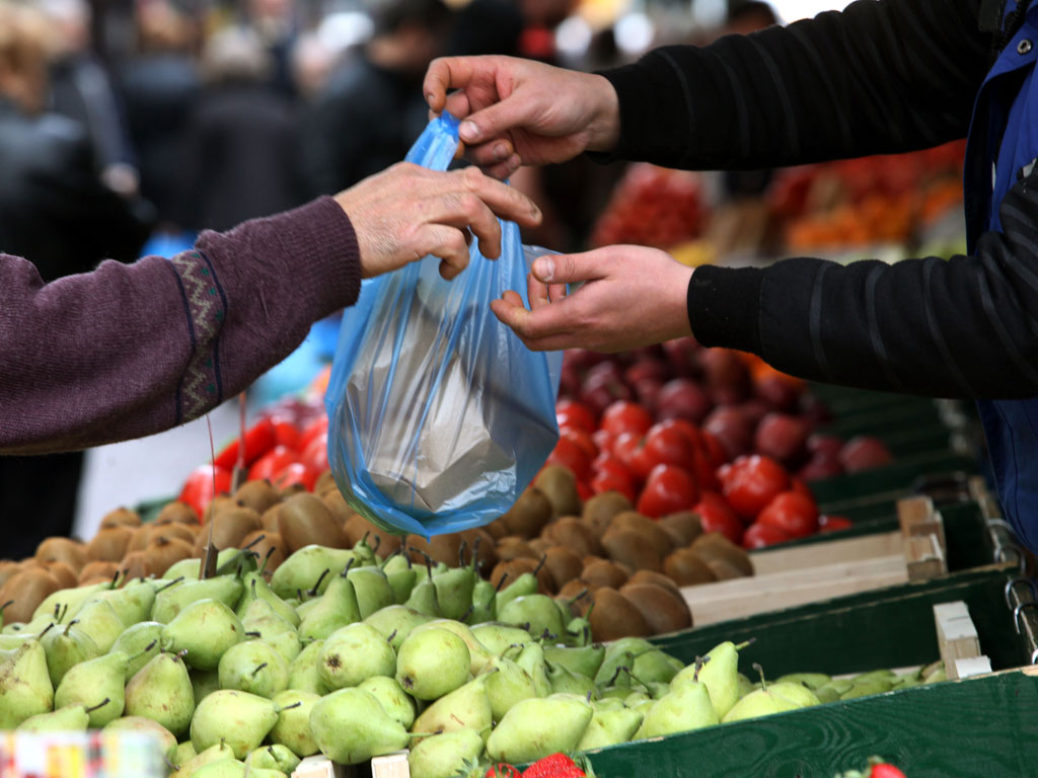How many of you remember the legendary TV commercial “This shirt? Imported!” as well as the equivalent “The persevering Greek wins” during the 80s? Those were the times when Greek economy was in running its first decade within the EU; the threat of competition hadn’t yet bared its teeth; many “problematic” Greek businesses were bought or supported by the “socialist” state; and the first funding amounts to cooperatives were gradually becoming the object of extravagant waste – to put it mildly.
With the invasion of private TV channels in our everyday routine, western consumerist models became a must. And this is how feta cheese made way for Italian parmesan cheese, water melon for mango, Minerva underwear for Dolce e Gabbana, Missolonghi salt for Himalayan pink salt, fresh fish for Vietnam tuna.
What helped this tendency immensely was the twist in prices that often leads to local products being more expensive than imported ones, with the valiant help of the EU Common Agricultural Policy. The quotas enforced to the limits of production and the “shared responsibility fines”, as well as the abolition of customs, left Greek products defenseless to the relentless competition of Asian ones, produced by starvation wages.
One is bound to remark that, in a time when people are counting dimes to get through the month, showing preference to the often more expensive Greek products is more or less a luxury. There is, however, a solid counter-argument to this, one that goes further than the emotional patriotic approach – an argument in purely financial terms.
First, preference to Greek products (of the primary sector mostly) can be built upon a seasonal choice of goods for the table. Why do we have to eat tomatoes at Christmas? By choosing seasonal goods, we are moving closer to local products. In local markets and grocery stores, local products are the stars.
Second, the consumption of local products has a smaller energy imprint, as it is called. Just calculate how much fuel is spent for an orange to get from Argentina to Greece.
Local products are healthier too, for two reasons. One, they do not require the same preservatives as imported ones. Two, legislation for genetically modified products is stricter in Europe than in America.
By patronizing the Greek producer, craftsman, local entrepreneur, we are helping reduce unemployment in our country. What would you rather have, €20 more for your monthly budget or one more unemployed person in the family?
It is possible to show preference to Greek products in two ways: On the one hand, by directly patronizing small businesses – the producer, the cooperative, the local shop. On the other hand, during a visit to the super market, by giving emphasis to the products’ labels. But beware, the middle man is quite deceptive in phrasing things. “Packaged in Greece” or “Greek product” is not enough when, for example, we’re looking at dried fruits that not produced in our country. In that case, it’s obvious that only the packaging producer is contributing to the Greek economy (maybe not even them). So, use your common sense for each separate case…
Steer clear of financial nationalism. All the above mentioned reasons for preferring Greek products are not founded on hate for German monopolies; rather, they are based on the sober rationality of health, on respect for the environment and, most of all, on the long-term effect of people’s everyday actions on the economy.
To anyone invoking the dilatory phrase “NOW we’re barely making ends meet”, I respond that it is precisely this collective short-sighted, short-term approach to things, as well as the general lack of long-term planning, that led to the worsening of the financial crisis’s consequences in our country. Let’s look a bit further than our nose. Not eating rocket in October is not the greatest sacrifice you can make in terms of quality of life…
current_Panos










































































































































































